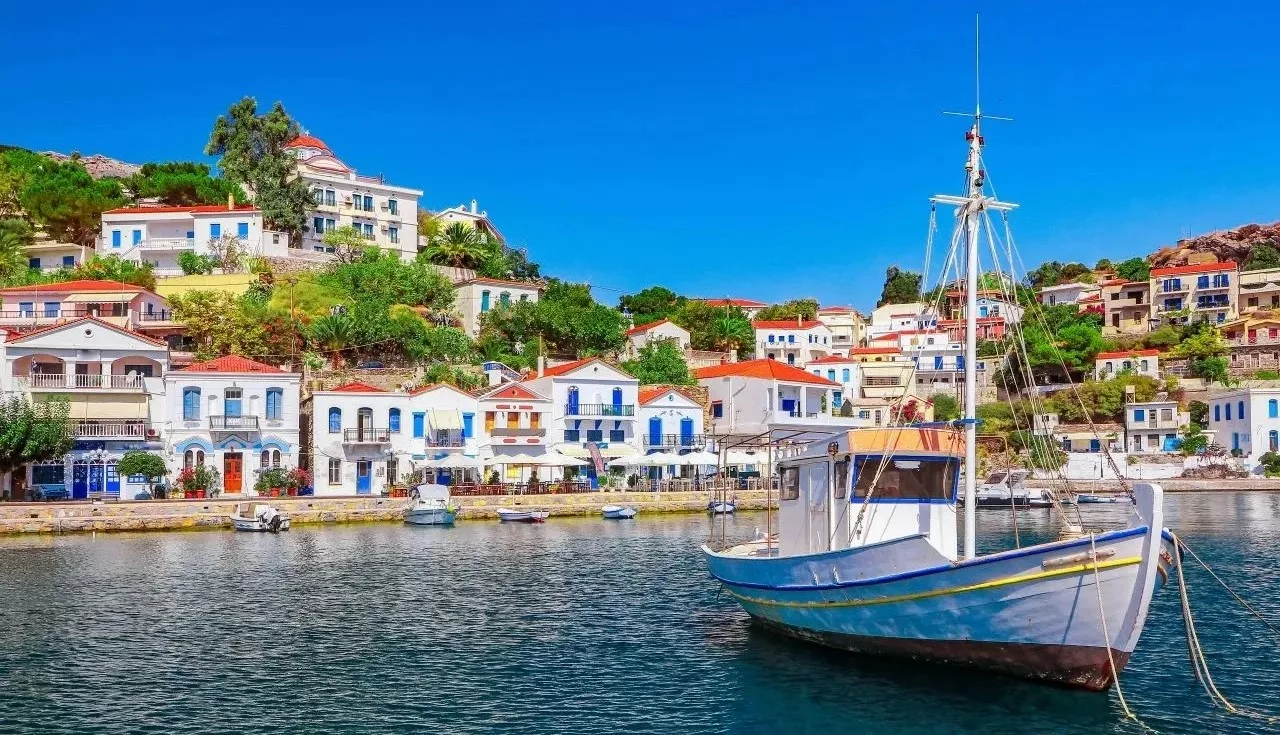Have you ever wondered if there’s a secret sauce to living a long and healthy life? Guess what? There are pockets of the world known as Blue Zones where people have it figured out. These regions are fascinating case studies for scientists and wellness enthusiasts alike, because they boast higher than average numbers of centenarians – people living to 100 years old or more.
Blue Zones aren’t just random spots on a map. They’re communities where the convergence of lifestyle, diet, and mindset create the perfect storm for longevity. I’m going to introduce you to places like Okinawa in Japan, Sardinia in Italy, Nicoya in Costa Rica, Icaria in Greece, and Loma Linda, California; each one with its own unique blueprint for a long and fruitful life.
This isn’t just about discovering exotic places; it’s also about gleaning insights that we can apply to our own lives. By studying Blue Zones, researchers aim to unlock the mysteries of longevity and translate those findings into practical guidelines for the rest of us.
Central to the Blue Zones story is Dan Buettner, a National Geographic Fellow and explorer. Buettner and his team identified and characterized these longevity hotspots, and through his books and talks, he has helped bring the Blue Zones into the limelight. His work highlights a key message: it’s not just the genetic lottery that contributes to a long life; lifestyle choices play a significant role too.
So, what can be so special about the diets of these areas that it puts them on a pedestal for longevity? This is where I’ll lead you next into the rich tapestry of Blue Zones’ nutrition wisdom that you can weave into your life for years to come, quite literally.
Nutrition Wisdom from the World’s Oldest People

Have you ever wondered if what we eat could be the key to a long and healthy life? The people living in Blue Zones are a living testament to that idea. They thrive on diets that are rich in plants and low in processed foods, hinting that longevity might just be found in our gardens and markets.
In all Blue Zones, plant-based diets are the norm. Residents load their plates with vegetables, fruits, whole grains, and nuts, and beans are a staple. Meat is consumed sparingly, often only a handful of times per month. In Sardinia, for example, you’re likely going to find a hearty bean stew on the kitchen table rather than a steak.
The ‘80% rule’, or ‘Hara Hachi Bu’ as it’s known in Okinawa, plays a crucial role in their eating habits. This isn’t just about dieting; it’s a way of life where you stop eating when you’re 80% full, thus preventing overeating and promoting weight control naturally. And as you’re considering pouring that second glass of wine, remember that moderation is key. While some Blue Zone populations enjoy alcohol, they do so sparingly, often with a daily glass of wine harmoniously shared with food and friends.
Striking a balance between a nourishing diet and a fulfilling lifestyle doesn’t have to be difficult. Choose foods that resonate with you and take pleasure in mindful eating. You’re going to find out about how to make mealtime a ritual for not just sustenance but also enjoyment—straight from the longevity playbook of Blue Zones.
The Longevity Lifestyle: Activity and Rest in Balance
In the Blue Zones, living longer isn’t just about what you eat—it’s about how you live. Daily physical activity is seamlessly woven into the lives of the world’s longest-living people. They don’t necessarily hit the gym for rigorous workouts. Instead, they live in environments that nudge them into moving without thinking about it—gardening, walking, and doing household chores are the norm.
But it’s not just about being on the move. Equally vital to the Blue Zones way of life is the practice of ‘downshifting.’ Throughout the day, they take time to de-stress, whether it’s through napping, meditating, or socializing. It’s a reminder that rest and recovery are as crucial as activity.
You might wonder how to mimic this balanced approach amidst our modern hustle. It’s about making conscious choices to integrate more movement into our day-to-day lives. Park farther from the store entrance, take the stairs, or turn household tasks into mini workouts. Every step counts.
And let’s talk sleep—it’s a non-negotiable for these centenarians. They often sleep for seven to eight hours a night, embracing a natural cycle of waking and resting with the sun. This consistency in sleep patterns is something that’s been lost in the buzz of modern living, but it’s integral to longevity.
As we transition into community and belonging, it’s clear that this balance of activity and rest is not just an individual pursuit. It’s a trait deeply embedded in the social fabric of Blue Zones, which brings us to the next pivotal aspect of longevity—our connections with others.
Community and Belonging: The Social Fabric of Blue Zones

Have you ever wondered if having a close-knit group of friends could help you live longer? Guess what? In Blue Zones, it does. People in these regions aren’t just eating leafy greens and taking leisurely walks; they’re also deeply invested in their communities. This engagement plays a massive role in their remarkable longevity.
Let’s talk about family. In Blue Zones, multiple generations often live under one roof, providing emotional support and practical help day-to-day. It isn’t uncommon to see grandparents playing with grandchildren and contributing to the household in meaningful ways, creating a circle of care that benefits everyone.
But the sense of community extends beyond bloodlines. Blue Zone inhabitants typically belong to tight social circles that support healthy behaviors, like committing to regular exercise or quitting smoking together. These social networks provide both psychological and practical support, making healthy choices less of a chore and more of a shared journey. It’s a bit like having a workout buddy, but for every good habit.
And we can’t overlook the impact of spirituality. Whether it’s attending church or participating in spiritual rituals, many residents of Blue Zones find strength and stress relief through faith. This aspect of Blue Zone life isn’t just about religion; it’s about the sense of connection and community that comes from shared beliefs and collective experiences.
So here’s a teaser for what’s next: If you want to live longer, don’t go it alone. Embrace the Blue Zones’ approach by weaving a strong web of friends and family that promotes a healthy lifestyle. And don’t worry too much about finding a perfect community overnight. You can always adjust your approach down the road, starting with small social circles and reaching out gradually. Take this inspiration with you into the next section, where I’ll give you practical steps to integrate Blue Zones principles into your own life.
Implementing Blue Zones Principles: Steps for a Longer, Healthier Life

You’re going to find out about how simple shifts in your lifestyle, drawn from the Blue Zones, may lead to a healthier and possibly longer life. It’s not just about adding years to your life, but life to your years – harnessing the essence of Blue Zones to enhance your overall well-being.
In my opinion, the greatest takeaway from Blue Zones isn’t a specific diet or workout regimen; it’s the holistic approach toward health. This means starting with small but meaningful changes in your diet, like incorporating more plant-based foods and eating until you’re just 80% full.
Next up, rethink how you view physical activity. Choose something that resonates with you – whether gardening, walking, or playing with your grandkids, and make it a part of your daily routine.
Don’t worry too much about needing to follow every step rigorously. Adjust your approach down the road based on what works for your body and lifestyle. The key is consistency and finding joy in the practices you adopt.
Stress management is another area where you can borrow a page from the Blue Zones playbook. Whether it’s through meditation, enjoying a hobby, or spending time in nature, find ways to downshift and decompress daily.
Creating a strong social network is vital. It’s not just about having friends but about fostering deep connections that offer support and purpose. Maybe it’s time to reach out more to your family, or to commit to regular meet-ups with friends.
Your first attempt at integrating these principles doesn’t need to be your last. Life is about iteration and finding balance. Remember, the journey to longevity is a marathon, not a sprint.
Discover the Secrets to Longevity with Dr. Mark Hyman’s “Young Forever
At StayingYoung.me, we are dedicated to helping you live your healthiest and most vibrant life. That’s why we are excited to introduce you to Dr. Mark Hyman’s revolutionary book, “Young Forever: The Secrets to Living Your Longest, Healthiest Life.” Dr. Hyman, a leading figure in functional medicine, provides a comprehensive guide to not just adding years to your life but adding life to your years.
What Experts Are Saying
**Tony Robbins**, global entrepreneur and philanthropist: “Dr. Hyman expertly unpacks mountains of longevity research—the most exciting frontier in medical science today—to deliver an accessible and practical guidebook for living your longest and healthiest life.”
**Eric Schmidt**, former CEO and Chairman of Google: “Anyone pursuing a long life of health and happiness must read this book. ‘Young Forever’ by my friend Dr. Hyman will change how you view aging. It will give you hope for living your best life for a very long time.”
**Here’s a little transparency: Our website contains affiliate links. This means if you click and make a purchase, we may receive a small commission. Don’t worry, there’s no extra cost to you. It’s a simple way you can support our mission to bring you quality content.**


Totally agree on how to live not just a long chronological age but a happy life. My father was an example for me how to live a good life, he passed peacefully at 96 and my mother at 102 with minimal health issues the last year of her life. Love, faith and definitely a sense of just a happy existence.
Hi Rosa,
It is truly inspiring to hear about your parents and how they exemplified living not just long but fulfilling lives. Your story reinforces the importance of love, faith, and happiness in achieving well-being and longevity. It’s people like you and your family who show us the incredible benefits of making positive, health-conscious decisions. Thank you for sharing such a beautiful testament to a life well-lived.
Your friend
Gerald Jr.
Growing up in a large family and with very limited income, my parents raised us with seasonal foods and with the abundance of the sea and animals that they raised. I used to complain about not having much bread or desserts (our desserts were apricots and pears) and definitely not artificial drinks or sodas.
Now I appreciate the life style and circumstances at the time since I had a healthy parents that passed the nineties and one hundred…. And for me I’m very fortunate to be healthy and grateful for lots of my good eating habits that was passed down from my parents.
Your story beautifully illustrates how the simple, wholesome lifestyle you grew up with has had a lasting impact on your health and well-being. It’s amazing how what we might have complained about as children—like the absence of sweets or sodas—turns out to be a blessing in disguise. The seasonal foods, fresh from nature or home-raised, have clearly contributed to your long-term health, just as they did for your parents, who lived remarkably long lives. Your gratitude for those early lessons in mindful eating is truly inspiring and a reminder of the value in embracing natural, nutritious foods. The wisdom your parents passed down has not only kept you healthy but also connected you to a legacy of mindful living.
Thank you for sharing your experiences, Rosa
Your friend Gerald Jr